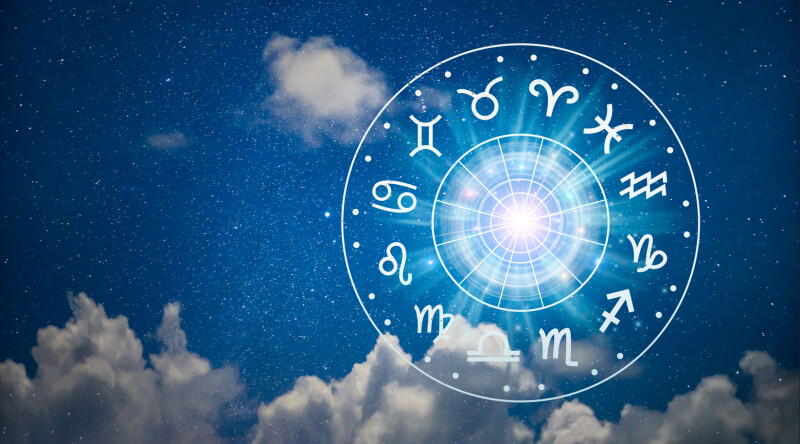Editor's note: This article is part of a series on what the Church has actually taught about various topics. To read more about the Church’s teachings on cremation, garments, beards, and more, click here.
A 2022 article from one of the UK’s largest publishers noted a recent rise in the popularity of astrology, suggesting that increased societal turmoil draws people to the practice: “As humans, we're hardwired to dislike and avoid uncertainty, and it produces acute stress responses, so when we cannot know how our futures will play out, it's understandable that we should turn in ever greater numbers towards astrology for clues.”
If astrology, which Britannica describes as a “type of divination that involves the forecasting of earthly and human events through the observation and interpretation of the fixed stars, the Sun, the Moon, and the planets” is on the rise, it may leave some Latter-day Saints wondering what Church has to say about it. The Church has not made any official statements about astrology in recent years, nor has the topic come up in general conference. However, the General Handbook does instruct members to not engage in “mystical activities that are not in harmony with the gospel of Jesus Christ. Such activities include (but are not limited to) fortune-telling, curses, and healing practices that are imitations of the priesthood power of God.” But the handbook has no specific mention of astrology.
In absence of recent Church teachings, this article will take a historical look at Church teachings regarding astrology.
What Has the Church Said about Astrology?
There was an abundance of Church-published material on astrology during the 1970s—likely because the rise of the “New Age” movement helped popularize astrology during that decade. Several Church magazine articles addressed those rising trends directly. A 1972 New Era article titled “What should our attitude be regarding zodiac signs, astrology, and horoscopes?” had this as its first sentence: “Basically our attitude should be the same as it is about fortune-telling, reading tea leaves, crystal ball gazing, or palm reading. To put it bluntly, any trust in such things is sheer superstition.”
The article later suggests why astrology does not align with the gospel principle of agency: “The astrologer, by using a chart of the zodiac and referring to the sign in the ascendant at the time of one’s birth, plots a map of the heavens. This is a horoscope and is supposed to determine one’s temperament, liability to accident, fortune, success, calamity, even susceptibility to disease.
“Our reason tells us that God, who recognized the free will of man as basic to his nature and gave him freedom of agency to manifest it, would not have left man’s destiny bound up and governed by the relationships and movements of astronomical bodies.”
In 1974, the Ensign included an article called “What the Scriptures Say about Astrology, Divination, Spirit Mediums, Magic, Wizardry, and Necromancy.” The article enumerates several examples of when people viewed astrologers and other forms of fortune-telling as superior to true prophets. The article ends with this admonition: “All who are acquainted with the spirit and faith of Jesus Christ will want nothing to do with any form of divination and spiritual wizardry.”
And then in 1979, the Liahona ran an excerpt of an article Elder James E. Talmage had written in 1893 for a magazine called The Contributor. The Liahona article, called “My Study of Astrology,” told how, as a boy, Elder Talmage had believed in astrology. So much so that he challenged the school bully to a fight, confident that we would win based on what he saw in the stars. Unfortunately for young Elder Talmage, he went home bruised and battered from that fight.
“This was convincing. My doubts vanished, and with them all my confidence in the horoscope. I knew that astrology was a fraud,” he wrote.
In addition to those publications, the King James Version of the Bible also has several references to astrology that may be helpful to Latter-day Saints.
What Do the Scriptures Say about Astrology?
The word “astrology” appears multiple times in the Old Testament. In Daniel chapter 1, Daniel is brought to live in the Babylonian king’s court and told to eat food that went against the law of Moses. Daniel proposes a 10-day testing period during which he will eat only what he personally chooses to eat. At the end of the 10 days, we learn this about Daniel: “In all matters of wisdom and understanding, that the king inquired of them, he found them ten times better than all the magicians and astrologers that were in all his realm.”
Later, when the king desires to know the interpretation of a dream, Daniel is again compared to the astrologers:
“Daniel answered in the presence of the king, and said, The secret which the king hath demanded cannot the wise men, the astrologers, the magicians, the soothsayers, shew unto the king” (Daniel 2:27).
Daniel then tells the king, “But there is a God in heaven that revealeth secrets, and maketh known to the king Nebuchadnezzar what shall be in the latter days” (Daniel 2:28). In chapter 4, we read that Nebuchadnezzar proclaims that Daniel was able to interpret his dream when the “the magicians, the astrologers, the Chaldeans, and the soothsayers” could not.
Then in chapter 5, Nebuchadnezzar’s son Belshazzar is disturbed to see a hand writing on his wall and “cries aloud to bring the astrologers, Chaldeans, and the soothsayers,” promising a chain of gold to whoever can explain the mysterious writing. When they are unable to, Belshazzar’s wife suggests they bring in Daniel, who she has heard has “the spirit of the holy gods.” Daniel is able to interpret the meaning of the writing for the king.
The last direct mention of astrology is in Isaiah 47:13–14: “Thou art wearied in the multitude of thy counsels. Let now the astrologers, the stargazers, the monthly prognosticators, stand up, and save thee from these things that shall come upon thee.
“Behold, they shall be as stubble; the fire shall burn them; they shall not deliver themselves from the power of the flame: there shall not be a coal to warm at, nor fire to sit before it.”
Notably, there is a heading for astrology in the Topical Guide, but underneath it merely says, “See Sorcery: Superstitions.”
Personal Revelation
Something President Russell M. Nelson has repeatedly emphasized during his time as President of the Church is the importance of seeking personal revelation. His words may provide direction to Latter-day Saints who are seeking guidance in their lives during uncertain times:
“I urge you to stretch beyond your current spiritual ability to receive personal revelation, for the Lord has promised that ‘if thou shalt [seek], thou shalt receive revelation upon revelation, knowledge upon knowledge, that thou mayest know the mysteries and peaceable things—that which bringeth joy, that which bringeth life eternal.’
“Oh, there is so much more that your Father in Heaven wants you to know. As Elder Neal A. Maxwell taught, ‘To those who have eyes to see and ears to hear, it is clear that the Father and the Son are giving away the secrets of the universe!’
“Nothing opens the heavens quite like the combination of increased purity, exact obedience, earnest seeking, daily feasting on the words of Christ in the Book of Mormon, and regular time committed to temple and family history work. … As you patiently honor the Lord’s timetable, you will be given the knowledge and understanding you seek. Every blessing the Lord has for you—even miracles—will follow. That is what personal revelation will do for you.”






















